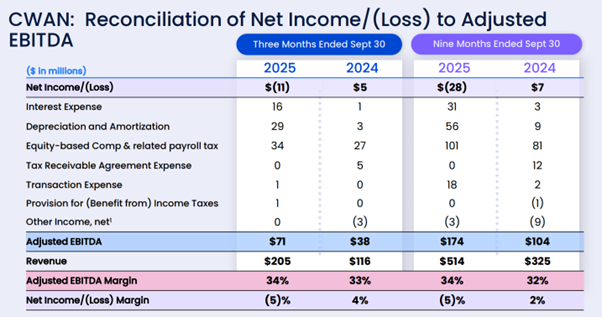Global private equity firms are negotiating a potential takeover of investment software provider Clearwater Analytics. Warburg Pincus and Permira have entered discussions to acquire the Boise-based company. A source familiar with the matter confirmed the talks on Friday.

Figure 1: Executives gather at Warburg Pincus’ London office during a sustainability strategy event.
The Permira Clearwater deal represents a notable development in the software sector. Both firms previously helped take Clearwater public in 2021 at a USD 5.5 billion valuation. The company’s market capitalisation stood at approximately USD 5.63 billion as of Friday’s close.
Private Equity Firms Return for Warburg Pincus Acquisition Bid
Clearwater Analytics went public through an initial public offering four years ago. Warburg Pincus and Permira played instrumental roles in that listing. Now, both firms are exploring bringing the company back into private ownership.
The discussions could take several weeks to conclude, according to the source. Bloomberg News first reported the negotiations earlier on Friday. Neither Warburg Pincus, Permira, nor Clearwater Analytics responded to requests for comment.
Strategic Rationale Behind the Potential Transaction
Clearwater Analytics specialises in investment and accounting software solutions. The company’s platforms help organisations manage their investment portfolios efficiently. Its client base includes asset managers, insurers, and corporations globally.
The potential Warburg Pincus acquisition reflects continued interest in financial technology infrastructure. Investment management software has become increasingly critical for institutional investors. Clearwater’s solutions address compliance, reporting, and portfolio analytics needs across multiple asset classes.
Financial Performance and AI Innovation Attract Buyout Interest
Clearwater Analytics demonstrated impressive revenue growth in its third quarter 2025 results. The company reported sales of USD 205.11 million versus USD 115.83 million a year earlier. This substantial increase reflects strong demand for investment management technology solutions.
The company’s stock has experienced volatility since its initial public offering. Shares declined 47% following short-term integration concerns and analyst downgrades after the Enfusion acquisition. Despite this correction, Clearwater maintains positive operating income and a robust client pipeline.

The recent launch of CWAN GenAI represents a significant competitive advantage. This integrated generative artificial intelligence platform is already influencing operational workflows for institutional clients. Users report measurable reductions in manual effort and faster reporting cycles across investment processes.
Clearwater’s software-as-a-service platform continues expanding through strategic acquisitions. The company targets international growth, product expansion, and complex regulated markets with high barriers to entry. Management guides for continued growth and profitability by 2027.
The Clearwater Analytics takeover news gains context from these performance metrics. Despite facing high stock-based compensation costs, the company trades at a premium to SaaS peers. Its higher growth trajectory justifies this valuation differential and likely attracted renewed private equity interest.
Clearwater Analytics Takeover News Follows Public Market Journey
The company’s 2021 public debut occurred during a peak period for technology valuations. Market conditions have shifted significantly since then. Many private equity firms have seized opportunities to take public companies private.
Clearwater’s current valuation sits slightly above its IPO level. The modest appreciation suggests the company has maintained value despite market volatility. This stability likely attracted renewed interest from its former backers.
Negotiation Progress and Expected Completion
Sources indicate the transaction discussions remain ongoing. Several weeks may pass before reaching a definitive agreement. Both private equity firms are conducting detailed due diligence.

Figure 3: Permira corporate headquarters
The Permira Clearwater deal structure has not been disclosed publicly. Typical buyout transactions involve a combination of equity and debt financing. The firms’ previous familiarity with Clearwater may accelerate the process.
Broader Implications for Financial Software Sector
This potential acquisition signals confidence in investment management technology. Private equity firms typically target companies with predictable revenue streams. Clearwater’s subscription-based model fits this profile well.
The Warburg Pincus acquisition attempt may encourage similar transactions. Other financial software companies could attract buyout interest. Private equity firms have substantial capital available for deployment in proven business models.
The financial services software market continues to experience consolidation. Larger platforms acquire smaller competitors to expand capabilities. Clearwater’s comprehensive offering positions it as an attractive consolidation platform.
Permira Clearwater Deal Reflects PE Strategy Shift
Private equity firms increasingly pursue take-private transactions of former portfolio companies. This strategy offers several advantages including operational familiarity. Warburg Pincus and Permira understand Clearwater’s business model intimately.
The firms may see unrealised value in Clearwater’s operations. Public market pressures sometimes constrain long-term strategic initiatives. Private ownership could enable more aggressive growth investments.

Figure 4: A business handshake symbolizing partnership and deal negotiations.
Market volatility has created attractive entry points for buyout firms. Technology valuations compressed significantly during 2022 and 2023. Many software companies now trade below their historical multiples.
Investor Considerations During Buyout Negotiations
Clearwater Analytics shareholders face important decisions ahead. Any formal offer will require careful evaluation. The USD 5.63 billion market capitalisation establishes a baseline valuation.
Shareholders should monitor premium levels in any proposal. Typical buyout offers include premiums above current trading prices. The Permira Clearwater deal terms will determine shareholder returns.
Company’s Strategic Direction Under Private Ownership
Private ownership could accelerate Clearwater’s product development initiatives. Investment in research and development often increases post-buyout. The company may pursue acquisitions more aggressively.

Figure 5: Clearwater Analytics’ corporate office
Geographic expansion represents another potential focus area. Clearwater serves clients globally but could deepen market penetration. The Warburg Pincus acquisition could fund international growth strategies.
Artificial intelligence integration may receive increased investment under private ownership. Many investment management firms seek AI-powered analytics capabilities. Clearwater could accelerate the development of predictive and prescriptive analytics features.
Also Read: “Very Standard?” Trump MRI Claim Sparks Surge of Questions
FAQs
Q1: Why are Warburg Pincus and Permira interested in buying Clearwater Analytics?
Both firms previously owned stakes in Clearwater and helped take it public in 2021. They understand the business model and likely see unrealised value.
Q2: What is Clearwater Analytics’ current valuation?
The company had a market capitalisation of approximately USD 5.63 billion as of Friday’s close. This is slightly above its USD 5.5 billion IPO valuation.
Q3: How long will the Permira Clearwater deal negotiations take?
Sources suggest the discussions could take several weeks. No definitive timeline has been announced publicly.
Q4: What does Clearwater Analytics do?
Clearwater provides investment and accounting software that helps companies manage their investment portfolios. Clients include asset managers, insurers, and corporations.
Q5: Will Clearwater shareholders benefit from this Warburg Pincus acquisition?
If a deal proceeds, shareholders typically receive a premium above current trading prices. The final terms will determine actual shareholder returns.












